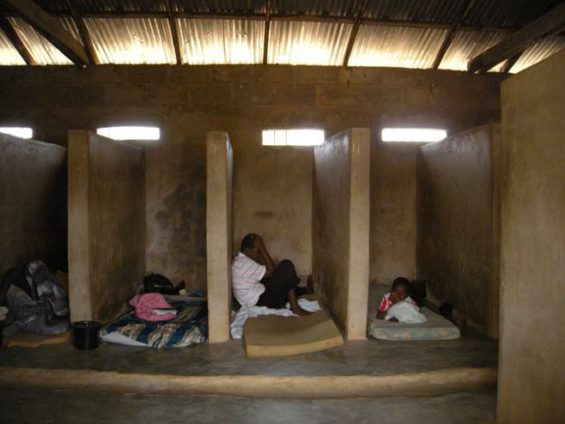Challenges with shelter among the Ghanaian population is a factor when it comes to mental health issues confronting the country.
This is according to Professor Divine Ahadzie, Head of the Centre for Settlements Studies at the Kwame Nkrumah University of Science and Technology (KNUST).
He has proffered some solutions in providing affordable and decent housing in Ghana. Ghana has a social housing problem. The country has a housing deficit of 1.7million units.
To meet the shelter needs of the population, an estimated 170,000 housing units would have to be built annually. Prof. Divine Ahadzie observed that access to good descent houses promotes good health.
According to him, the housing problems such as high rent charges and frustrations dealing with homeowners, can worsen mental health problems.
"When you have the larger population having issues with housing, then there is a likelihood that the mental health of many people will be affected. It is linked to production at work, happiness and social life. Hence, once you take care of the home, mental health is also taken care of."

Prof. Ahadzie alluded to the compound housing concept as being helpful in meeting the accommodation needs of the populace.
He is prevailing on the government to upgrade the compound housing concept as an urban social housing strategy.
"Now compound houses are not economical in the cities, because if you put up a compound house you won’t get people to rent. Now compound houses are not built anymore. The existing ones are being upgraded so that sharing amenities are eliminated.
He continued that, "...this has raised the cost of rent pushing out the traditional compound house occupants, yet the government has not come in to fill the gap. Now the Minister is pushing for the National Housing Authority to be called to parliament and questioned on the policy for such people in addressing their housing needs."
Prof. Ahadzie also believes there are opportunities in reducing housing through the use of local materials.
"It has been established that over 70% of our soil composition is laterite. That is why we normally use it for construction of our roads and building of traditional houses.
However, through research and technology, he said that it has been upgraded to a new level of acceptable housing.
"Regardless of this, people still live with some regressive perception toward the laterite material. It is a matter of government policy and direction. People should also embrace it."
Latest Stories
-
Former head of Central African football body jailed for war crimes
4 hours -
US clears way for $8 billion Paramount-Skydance merger
4 hours -
Female exec captured in viral Coldplay concert clip resigns
5 hours -
Arsenal sign defender Mosquera from Valencia
5 hours -
Debt restructuring programme was poorly structured – Finance Minister Ato Forson says
5 hours -
Mahama appoints fresh batch of ambassadors to key global capitals
5 hours -
Isak wants to explore move away from Newcastle
6 hours -
Benin names Spike Lee and wife ambassadors for African-Americans in the US
6 hours -
Trade deal on US tariffs within reach, says EU, as 1 August deadline nears
6 hours -
Trump bickers with Powell over Fed renovation costs
7 hours -
‘We will not default’ – Ato Forson assures bondholders as GH¢20bn DDEP payment plan unfolds
7 hours -
Take time to get VAT reforms right before scrapping COVID-19 levy – Prof. Asuming
7 hours -
France will recognise Palestinian state, Macron says
7 hours -
Foreign Affairs Ministry denies issuing Ghanaian passports to non-citizens
8 hours -
Uganda to host Asia/Africa play-off for 2027 Rugby World Cup
8 hours

